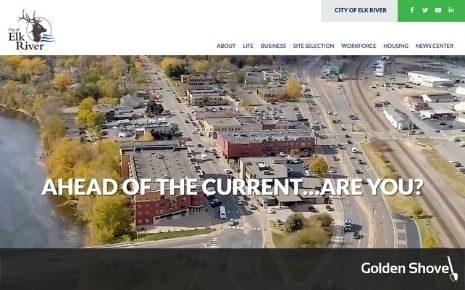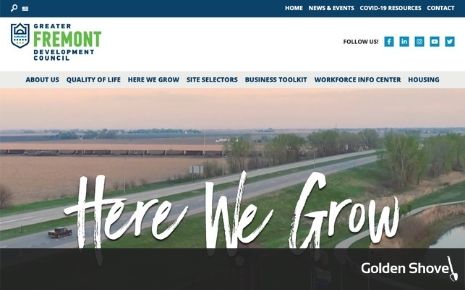SEO for the Savvy Economic Developer

1 Dec 2020
News, Marketing, Website Development
Authors don’t write books for librarians, they write books for readers. So why are economic developers creating websites just for search engines?
The sole focus on search engine rankings has moved economic development website marketing away from the true intended purpose - connecting communities to business owners and expanding economic growth opportunities.
Economic development professionals desire more traffic. But that goal is getting in the way of making sure the users actually find the information they are seeking. We confuse the search engine rankings and analysis with success when the primary goal is still to deliver relevant content from the user. The savvy economic developer knows a relevant website will drive more and better traffic, thus improving the search engine rankings.
Let's break down a popular process:
- Create a website and include the popular search terms for the group of people you want to attract.
- Hire an SEO firm or assign an SEO person on your staff to review the site and make it “SEO-ready.”
- Allow the super complicated, highly secretive search engine algorithms to rank your site.
- Create backlinks, social media posts, and sponsored ads to improve your ranking.
- Check your rankings, tweak, and repeat.
This process can produce success but is focused more on the search engine as the audience. All the work is intended to influence the search engine algorithm, but there is little focus on actually delivering content to the user. Again, writers don’t write books for librarians.
There is a better approach that needs to be inserted at the front of the process:
- Ask yourself - Do you know what the user is actually searching for?
- Is the website or page relevant to the user you wish to attract?
- Did the user complete the task or have their question answered?
Let’s do a simple test. Are you still reading this blog post? If so, then we have engaged you with content that is fulfilling your desire to learn content marketing. If you have left, and you haven’t read this paragraph, then our lengthy explanation disappointed you, and we haven’t done a very good job of fulfilling your interest. We hope you’re still reading!
#1 Ask Yourself - Do You Know What the User is Actually Searching For?
Eyeballs and user clicks are big business. Unfortunately, the recent trend is to create clickbait and hyped-up news just to get people to like and share content. But as economic developers with integrity, we don’t need to engage in those “tactics.”
Let’s begin with your community. Your community has assets and attractions that are of interest to certain businesses and entrepreneurs. So begin with the ideal person you want to attract. Take some time and build their profile. Who is this user? What interests do they have? What type of business do they want to start? What does their family look like? Know your audience and you will have a better understanding of the website and content you create. And therefore be more relevant to their search.
#2 Is the Website or Page Relevant to the User You Wish to Attract?
Sure, you can research all the keywords for the group you want to attract and sprinkle those in the content, but users are smart enough to know when the webpage meets their needs. Don’t try to bait and switch approach where you trick the user into viewing your site with one search term but offer them other content. This type of marketing only creates bounced users - users who click on your site but immediately “bounce” to go somewhere else.
Actually write the content for your user. One of the clearest examples of this laser-focused content approach is Chuck Sexton of One East Kentucky. We were working on his community’s site content and he expressed to us, “We have thousands of highly-skilled workers waiting for employment. We are not just attracting any business, we are attracting businesses that can use our specific workers.”
The clarity allowed us to focus on the content specifically for businesses that could use highly skilled, displaced coal miners. Yes, this meant some businesses wouldn’t be attracted or interested, but it also meant the businesses that we attracted found the content highly relevant.
#3 Did the User Complete the Task or Have Their Question Answered?
The visitor followed your link to accomplish something. They wanted to learn something. And of course, we know that internet users are impatient so if they don’t immediately see a fulfillment path, they probably leave or “bounce.”
But if they complete their task or have their questions answered, they may come back, share your page, link to your page, tell others, tweet it, or perhaps post your page to their Facebook or LinkedIn account - all of these actions pique the attention of search engines. The idea of giving the user what they want seems like common sense, but honestly, there are so many pages that are just fluff content meant to attract users for statistics just to drive rankings, that common sense is sometimes lost.
Many marketers view website statistics as currency. That is the mentality that drives the clickbait industry. The savvy economic developer knows their website is not based on advertising revenue; their website promotes the community. You don’t just want visitors. You want business owners, site selectors, and entrepreneurs. When you provide the right information for these visitors, you don’t just get favorable search engine rankings. You get economic growth.
More Topics





